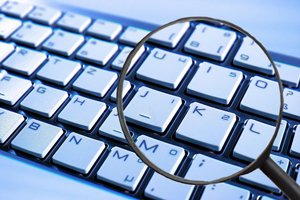NEW YORK, NY - Doxxing – short for “Dropping Documents” – is the act of posting someone’s personal information online without their knowledge or consent for the purposes of inciting harassment against them. The reasons for doxxing someone can vary from petty revenge to juvenile pranks, but the result is almost always the same- the victim is shamed and hectored and least, and lead to fear for their very lives at the worst.
 Information unleashed to the masses during a doxxing incident typically include the name, home address, email and phone number of the victim, in addition to links to personal social media accounts. In addition, information regarding friends, family, and loved ones can be readily disclosed as well, but regardless of the situation, the release of this information usually comes with a request from the person doing the doxxing- a request for any and all willing parties to begin a coordinated campaign of harassment intent on making the victim’s life a living hell.
Information unleashed to the masses during a doxxing incident typically include the name, home address, email and phone number of the victim, in addition to links to personal social media accounts. In addition, information regarding friends, family, and loved ones can be readily disclosed as well, but regardless of the situation, the release of this information usually comes with a request from the person doing the doxxing- a request for any and all willing parties to begin a coordinated campaign of harassment intent on making the victim’s life a living hell.
And occasionally, a person being doxxed is actually the victim of mistaken identity, which can compound the damage being done, as the person being harassed has no clue of what or why this is happening to them.
Doxxing can be upsetting, and in some cases even dangerous, but unfortunately it’s an example of an act involving technology that the law hasn’t caught up to yet. Doxxing must result in behavior that results in outright stalking or mass harassment in order for it to become actionable, sadly.
Most often, the information that makes up a doxxing event is gathered from readily-available sources- most usually, it’s publically-available White Pages listings found online – where their most direct contact info can be found – in addition to things like property records, tax documents, voter registration databases, and social media websites such as Facebook. Extreme cases may even involve the perpetrator following the victim in real life to possibly glean some piece of info from them, which is truly disturbing.
And while the average person has little to fear from a dreadful doxxing attack, there may come a day when they’ve crossed the wrong person and will find themselves at the mercy of the digital mob…unless they take a few precautionary measures to help reduce or outright eliminate the chances of that happening.
First, make an effort to have yourself removed from people-finder sites, which typically reveal phone numbers, addresses, and relatives, among other identifying info. Most of these sites have opt-out options that you can engage – some easier to use than others – but the more you remove yourself from, the less ammo a potential doxxer will have to use against you. Legitimate White Pages sites such as White Pages Goes Green are typically quite secure and do not display an email address, which discourages doxxers – but if a site seems fishy, it’s best to remove your listings from there.
On social media, it’s vital to go over any and all privacy settings and make sure they are all set to “private” or “friends only.” Even making your information available to “friends of friends” should be avoided. In addition, strengthening your passwords is a great idea as well to avoid any unexpected breaches of security.
Is your personal email address out there on the web somewhere? If so, you might want to remove it from places such as a personal website, social media, or anywhere else it might be.
And finally, two-factor authentication on any online accounts you might have – especially anything connected to social media or any website that has your personal payment info on-file, such as PayPal or Amazon – is important as well. Logging into a site quickly with one simple password may be very convenient, but in the long run it pays to be secure with your personal information.
Following these tips – and there are many others out there to read up on – and help keep your personal information safe and out of the hand of anyone who might wish to do you harm. Doxxing is no fun - but if you’re careful, you can easily avoid it and the stress that comes along with it.


